Business Correspondence Training Course in Singapore
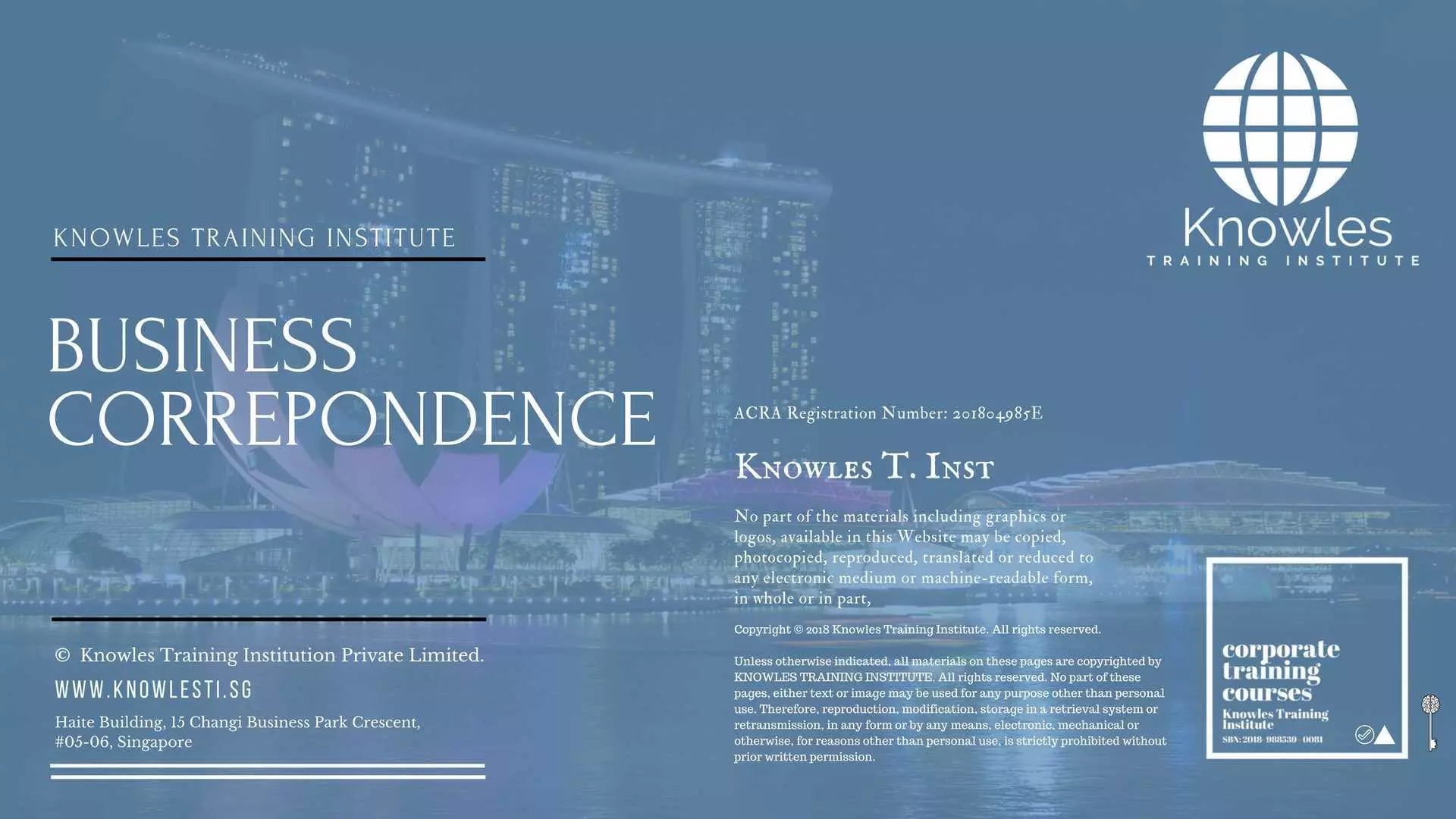
About This Business Correspondence Training Course
Business Correspondence Course in Singapore
Business Correspondence is the act of communicating properly and politely with business clients and customers. Exchanging information through Business Correspondence is usually written through letters and electronic mail, and it can involve communication within or outside of the business. Business Correspondence builds the first impression of others, yet business professionals often disregard this simple skill.
Learning how to do Business Correspondence is a must for business professionals seeking to develop their professional image. Business Correspondence helps build the skills needed for effective business writing.
In this Business Correspondence course, participants will learn how to follow business standards in communicating with clients, customers, and business professionals. This course will also tackle the context of business correspondence, and its intricacies which need to be taken into account.
Who Should Attend This Business Correspondence Workshop
This Business Correspondence workshop is ideal for anyone who would like to gain a strong grasp and improve their Business Correspondence.
All Staff Within An Organisation
Managers
Team Leaders
Executives
Assistants
Officers
Secretaries
Group Size For This Business Correspondence Training Program
The ideal group size for this Business Correspondence course is:
Minimum: 5 Participants
Maximum: 15 Participants
Course Duration For This Business Correspondence Skills Course
The duration of this Business Correspondence workshop is 2 full days. Knowles Training Institute will also be able to contextualised this workshop according to different durations; 3 full days, 1 day, half day, 90 minutes and 60 minutes.
2 Full Days
9 a.m to 5 p.m
Business Correspondence Course Benefits
Below is the list of course benefits of our Business Correspondence course
Learn how to write formal business letters and communications
Develop formality and professionalism in business writing
Professionalize business writing practices
Perform business writing with ease
Obtain skills needed for performing effective business communication
Business Correspondence Course Objectives
Below is the list of course objectives of our Business Correspondence course
Identify basic principles of effective business writing
Understand what principles are followed in effective business writing
Utilize principles of effective business writing in drafting correspondence
Write business communications clearly
Ensure completeness of details presented in correspondences
Apply the correct tone in writing correspondences and replies
Develop proper business writing habits
Implement protocols in dealing with business inquiries and messages
Understand how to make follow-up requests or inquiries
Identify when not to use email in correspondences
Evaluate existing business writing practices
Create effective business correspondences to promote a professional image
Course Content For This Business Correspondence Training Course
Below is the list of course content of our Business Correspondence training course
Principles of Effective Business Writing
Identifying Common Mistakes
Check for Grammatical Errors
Keep the Content Clear and Simple
Ensure Accurate Details
Politeness and Respect Using Tone
Business Correspondence in Context
When not to use Email for Correspondences
Urgency in Communications and Correspondences
Dealing with Protocols and Customs
Handling Follow-Up Inquiries
Workshops: Writing and Editing Correspondences
Copywriting Correspondences using Effective Business Writing
Writing a Sample Business Correspondence
Best Practices in Writing Correspondences
Business Correspondence Value Added Materials
Each participant will receive the following materials for the time management course
Business Correspondence Learner’s Guide
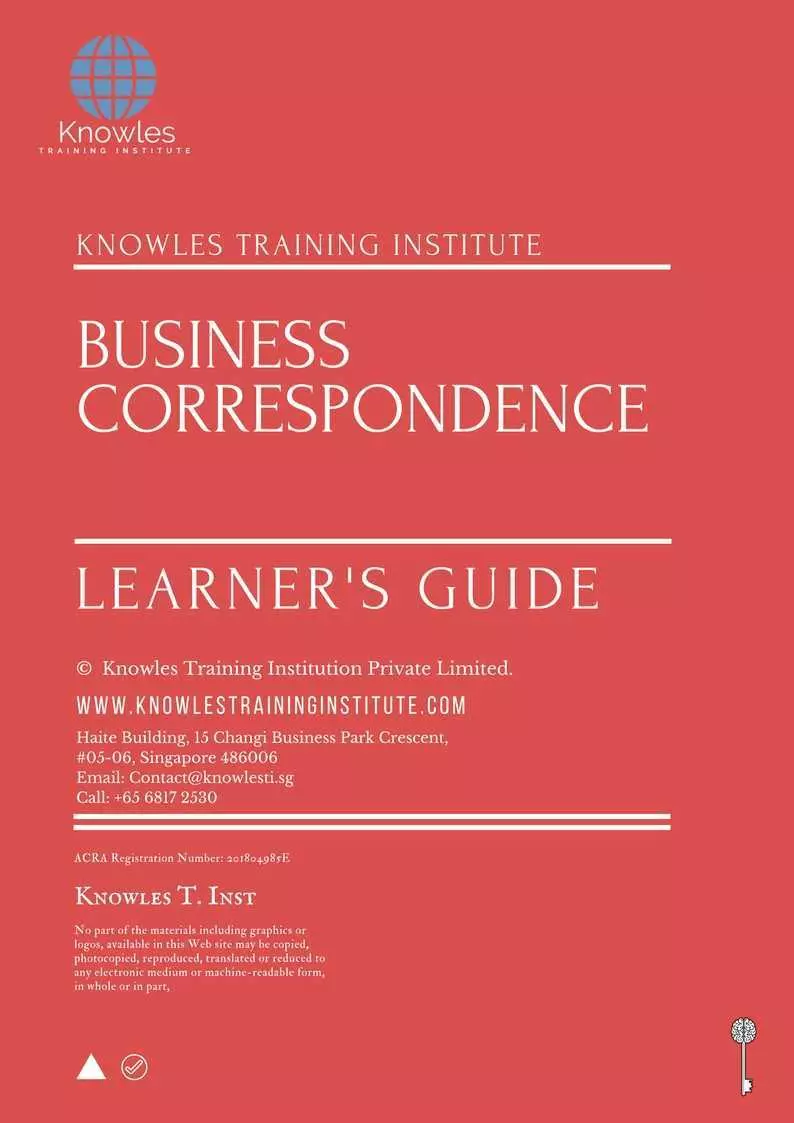
Business Correspondence Key Takeaways Notes
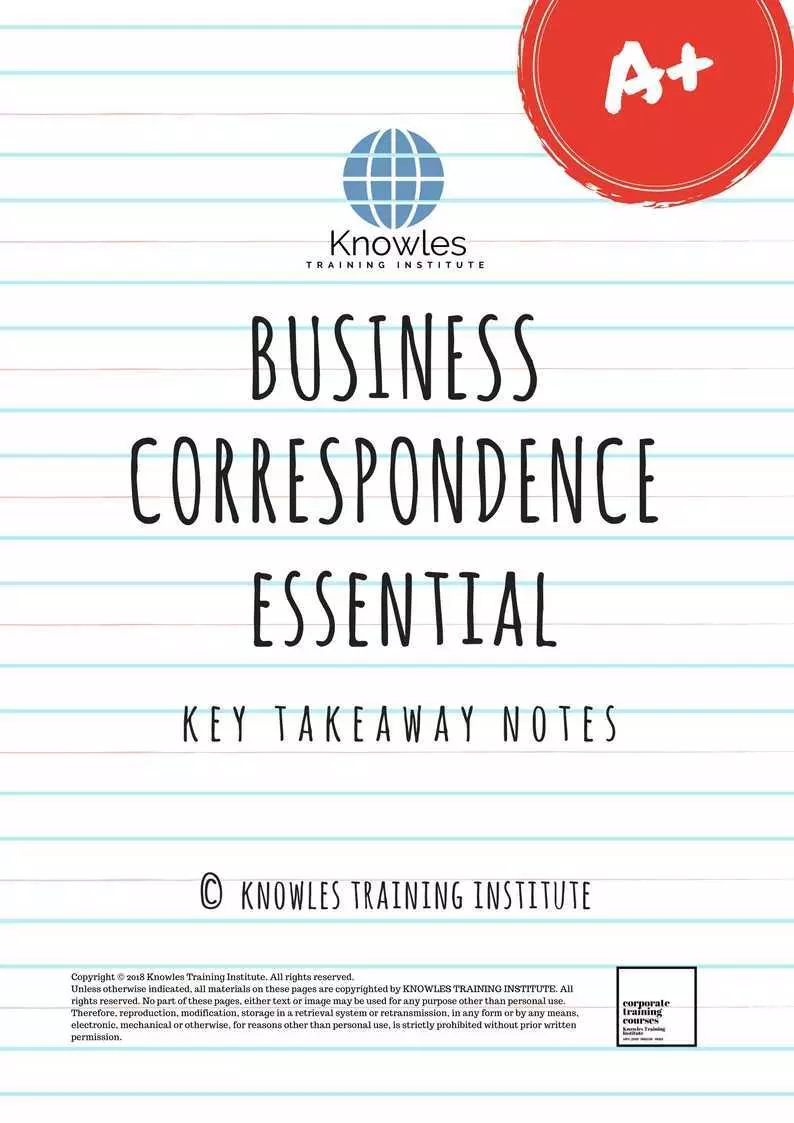
Business Correspondence Essentials Ebook
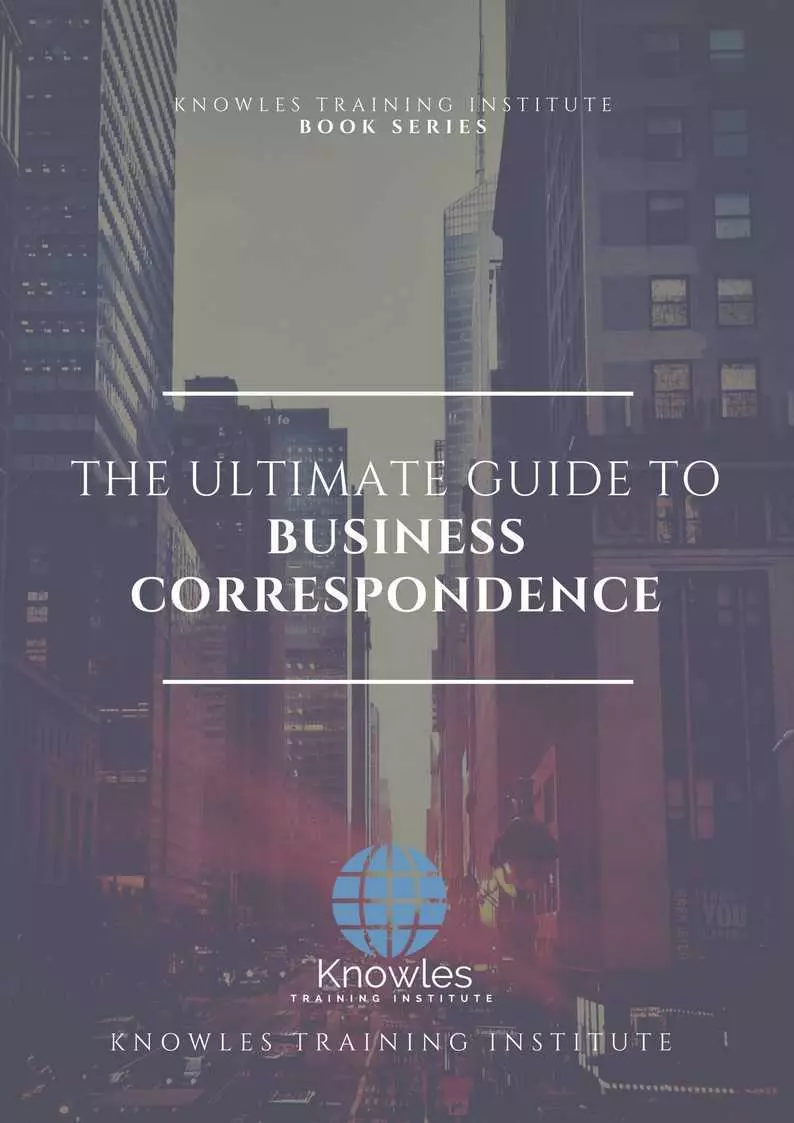
Business Correspondence Course Handouts
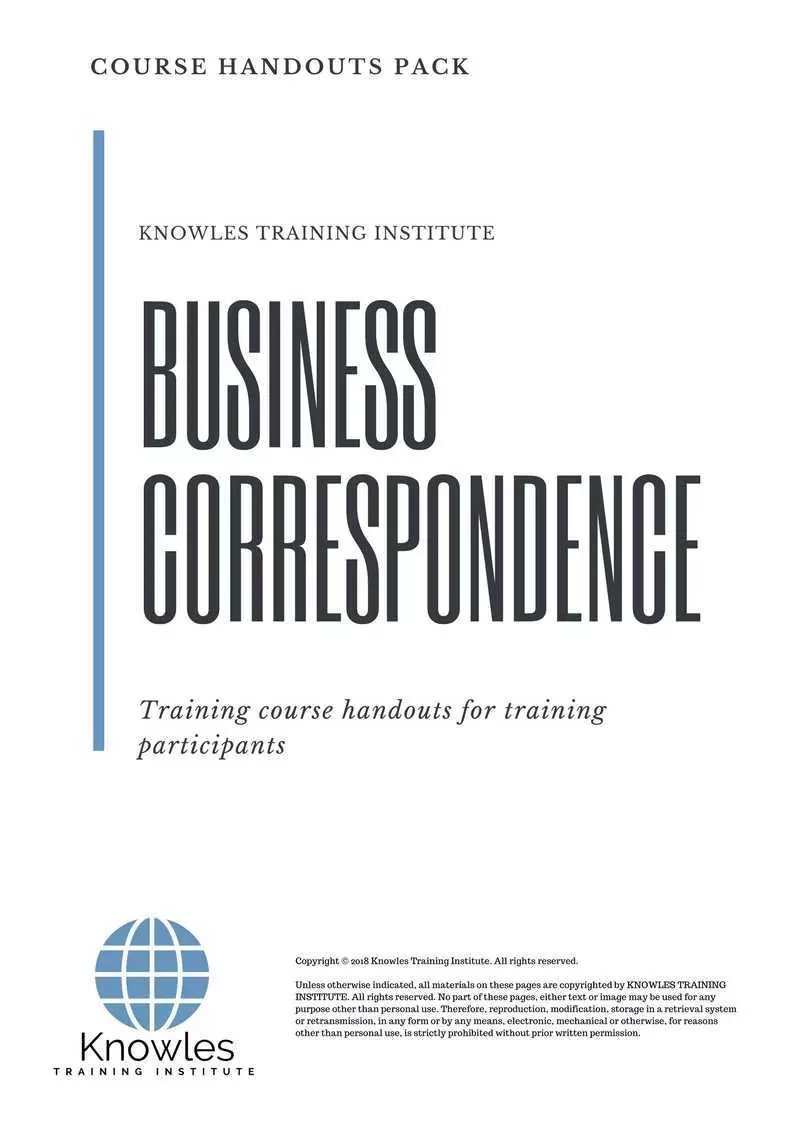
Business Correspondence 30-Day Action Plan
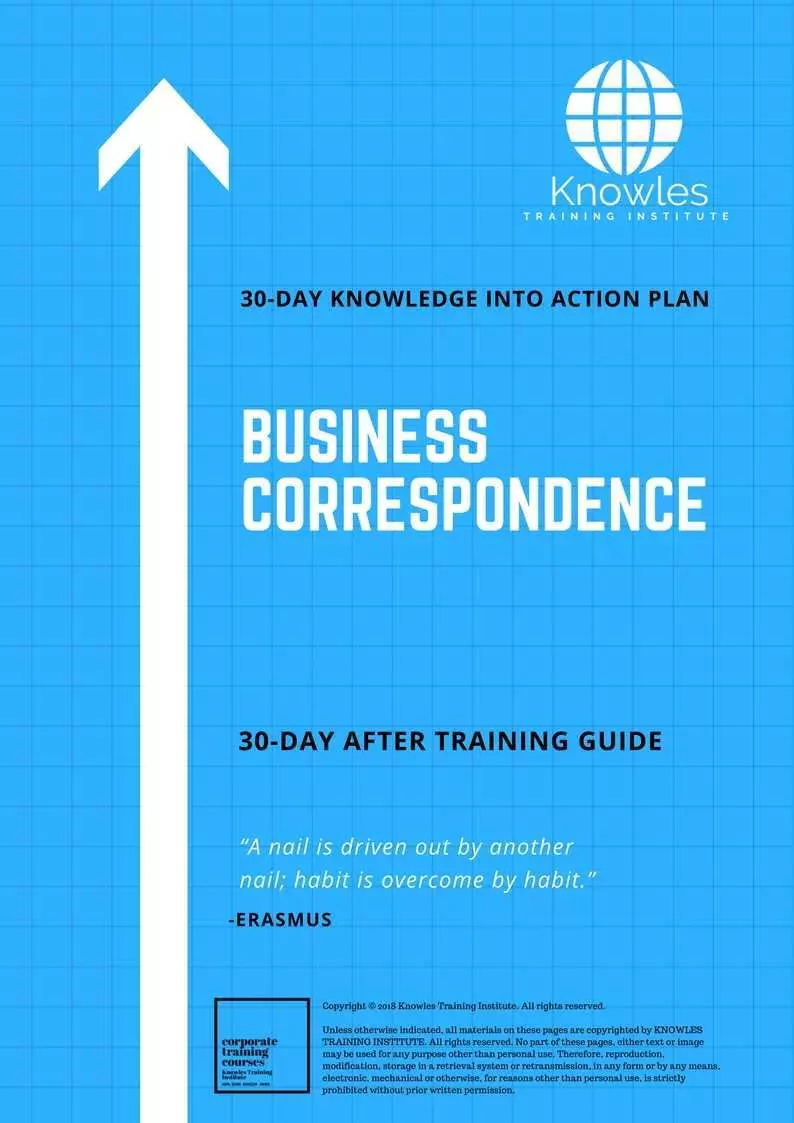
Business Correspondence MindMaps Pack
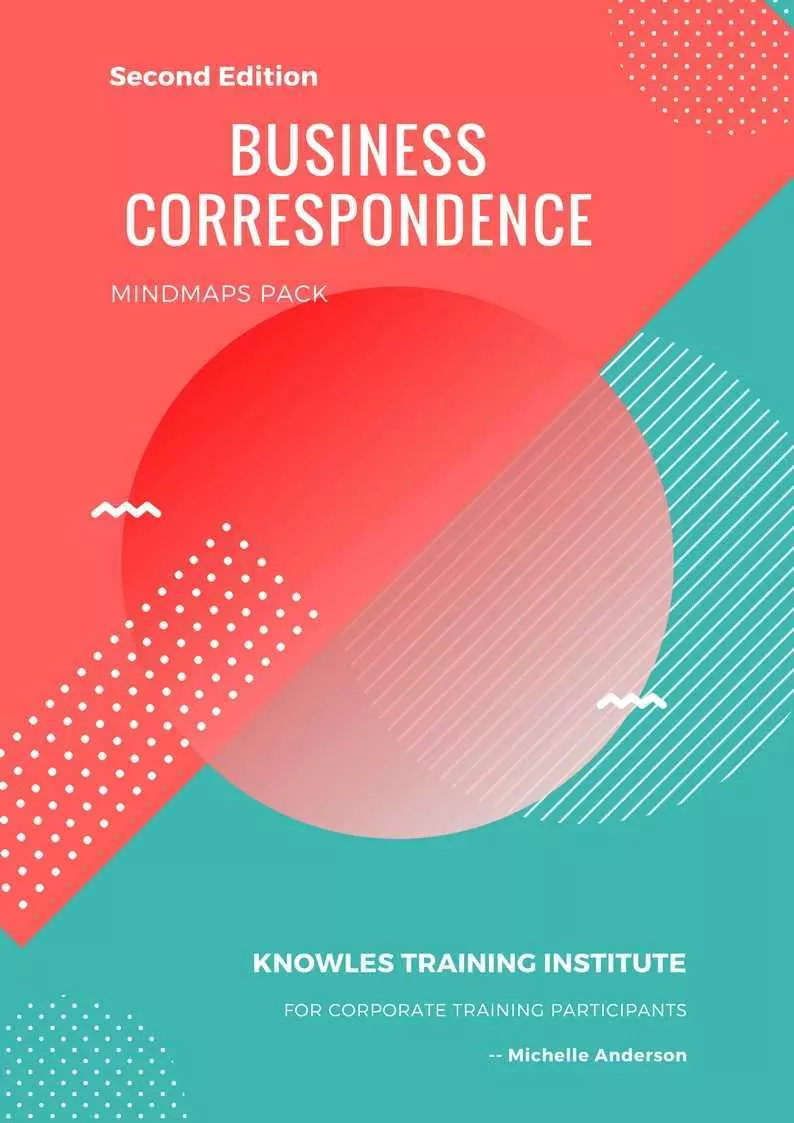
Business Correspondence PPT Slides Used During Course
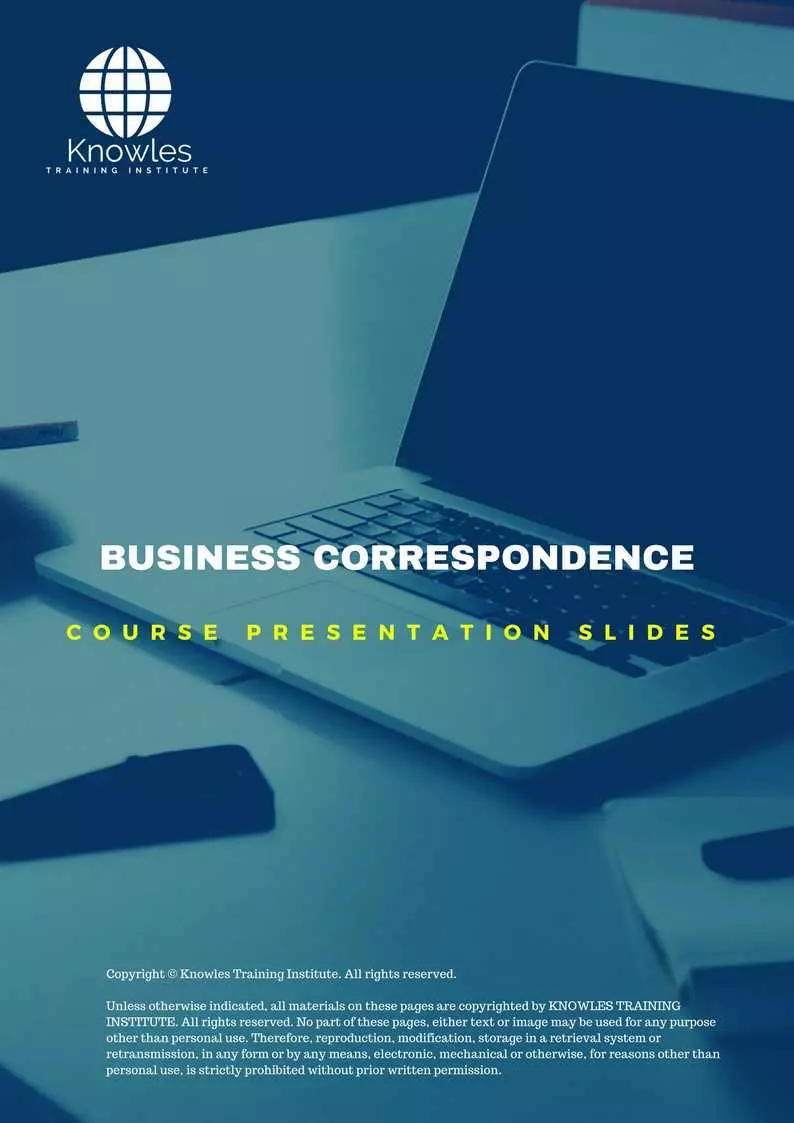
Business Correspondence Long-Term Memory Flashcards Pack
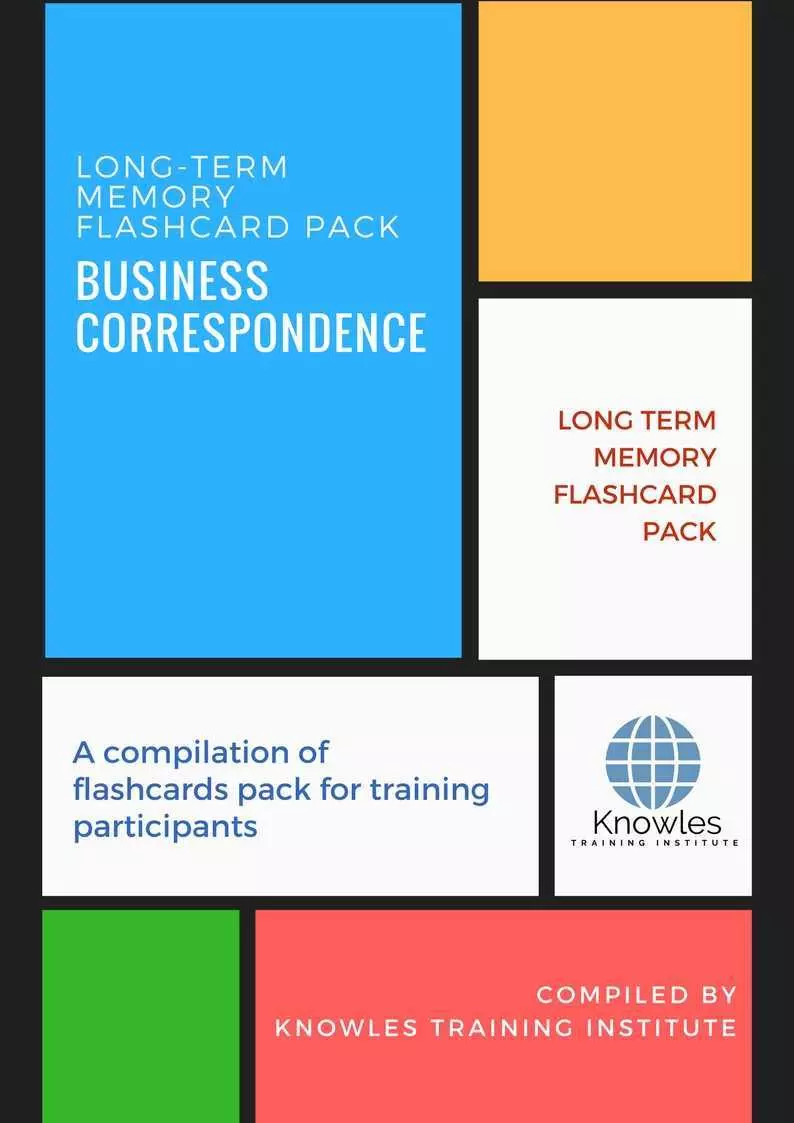
Business Correspondence E-Learning Course
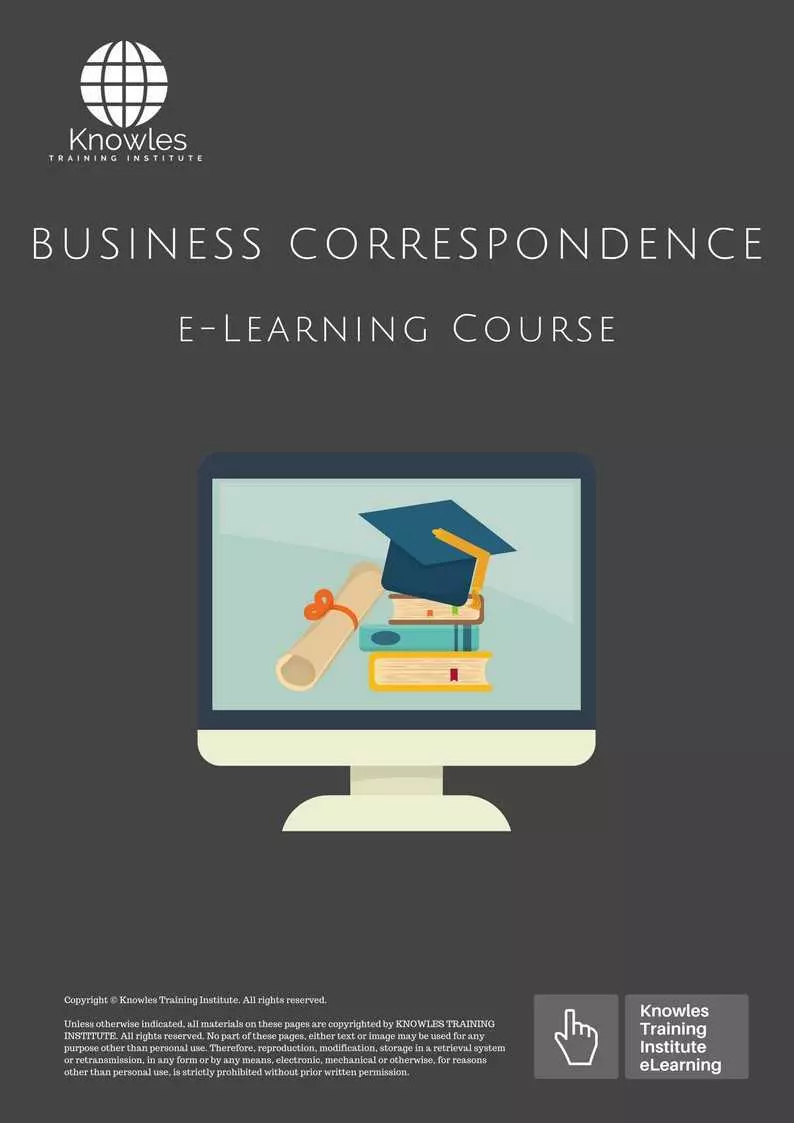
Business Correspondence Online Video Course
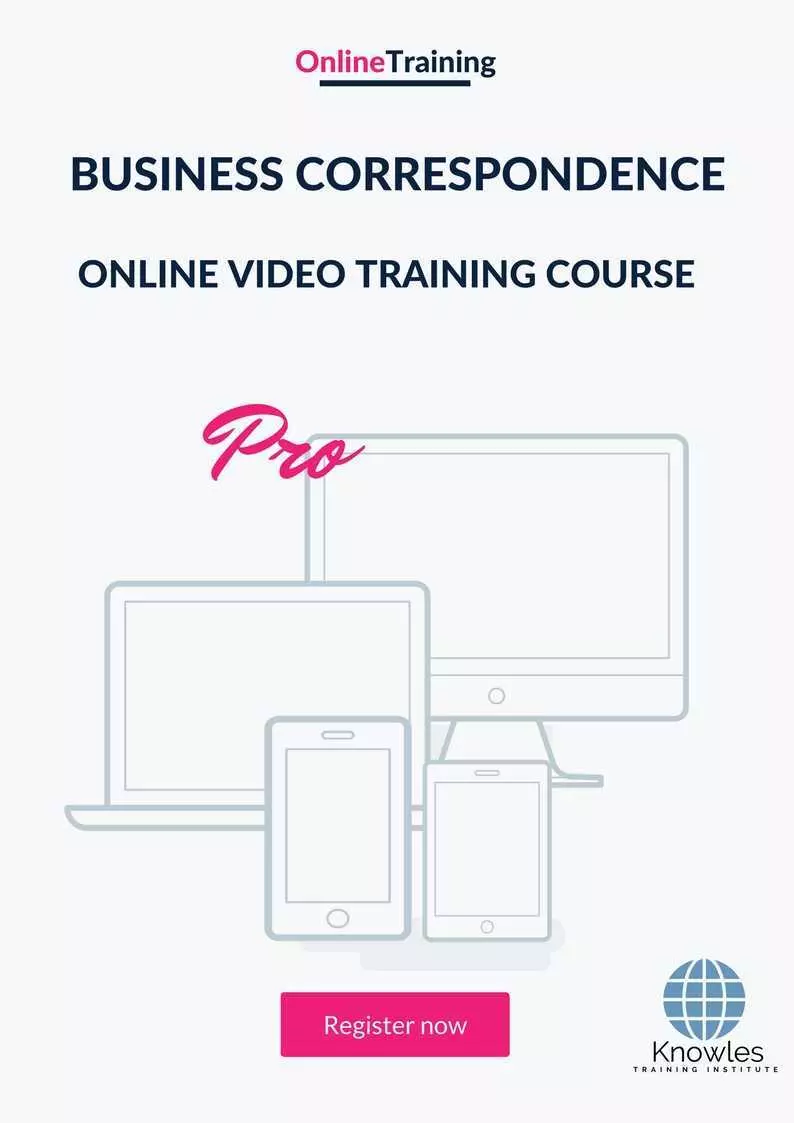
Business Correspondence Essentials Audiobook
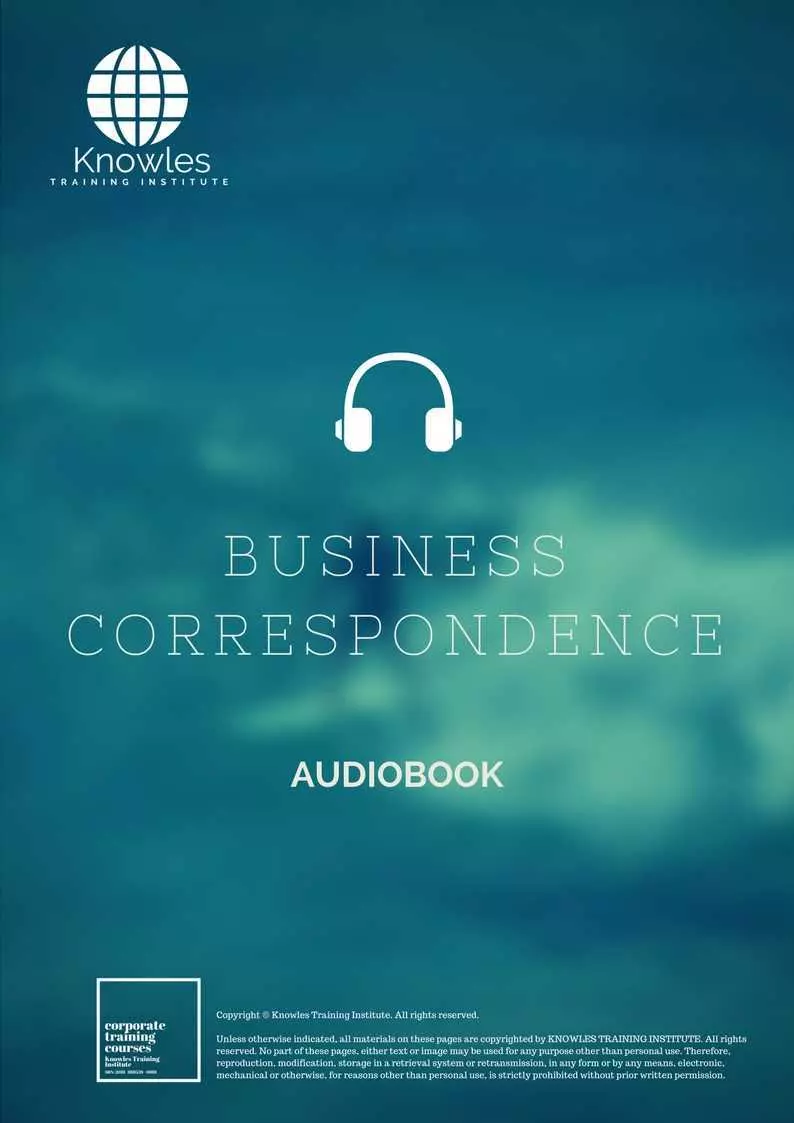
Business Correspondence Infographics Pack
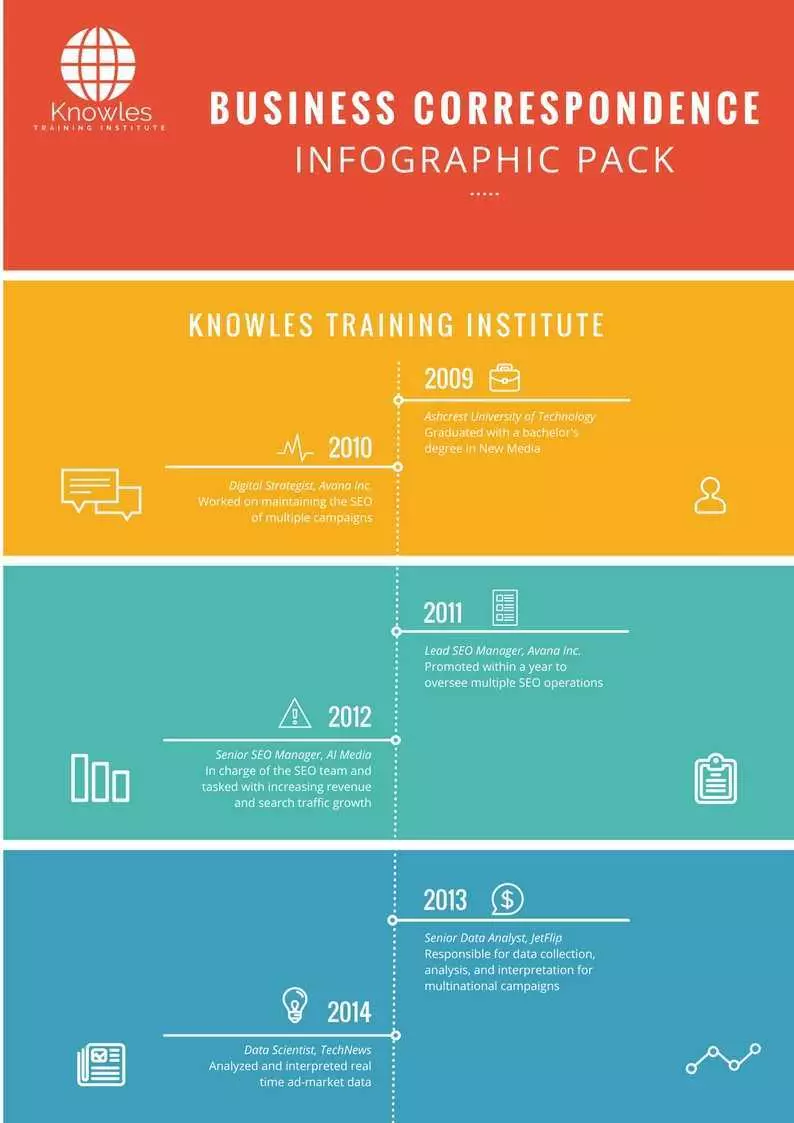
Business Correspondence Certification
Each course participant will receive a certification of training completion
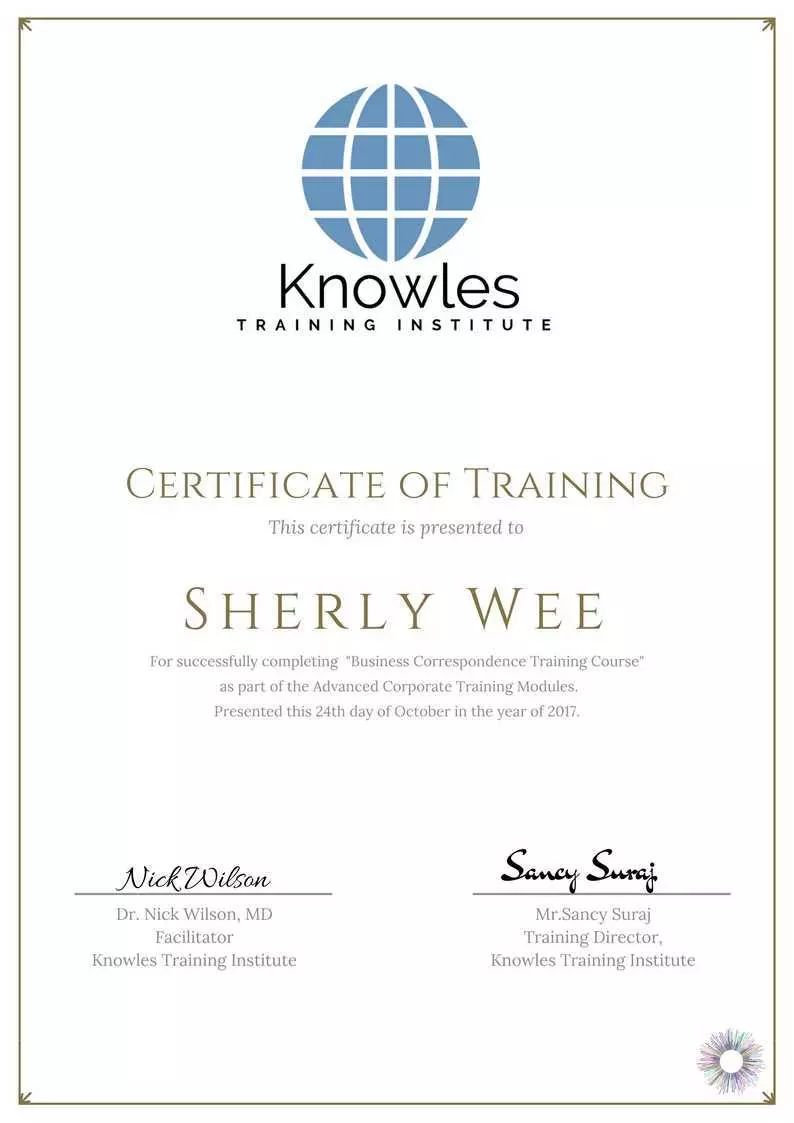
Course Fees
There are 4 pricing options available for this Business Correspondence training course. Course participants not in Singapore may choose to sign up for our online Business Correspondence training course.
- SGD 889.97 For a 60-minute Lunch Talk Session.
- SGD 389.97 For a Half Day Course Per Participant.
- SGD 589.97 For a 1 Day Course Per Participant.
- SGD 789.97 For a 2 Day Course Per Participant.
Discounts available for more than 2 participants.
Upcoming Business Correspondence Training Course Schedule
Contact us for the latest Business Correspondence course schedules:
Phone: +65 6714 6663
Email: contact@knowlesti.com
Message:
Download Business Correspondence Course Brochure
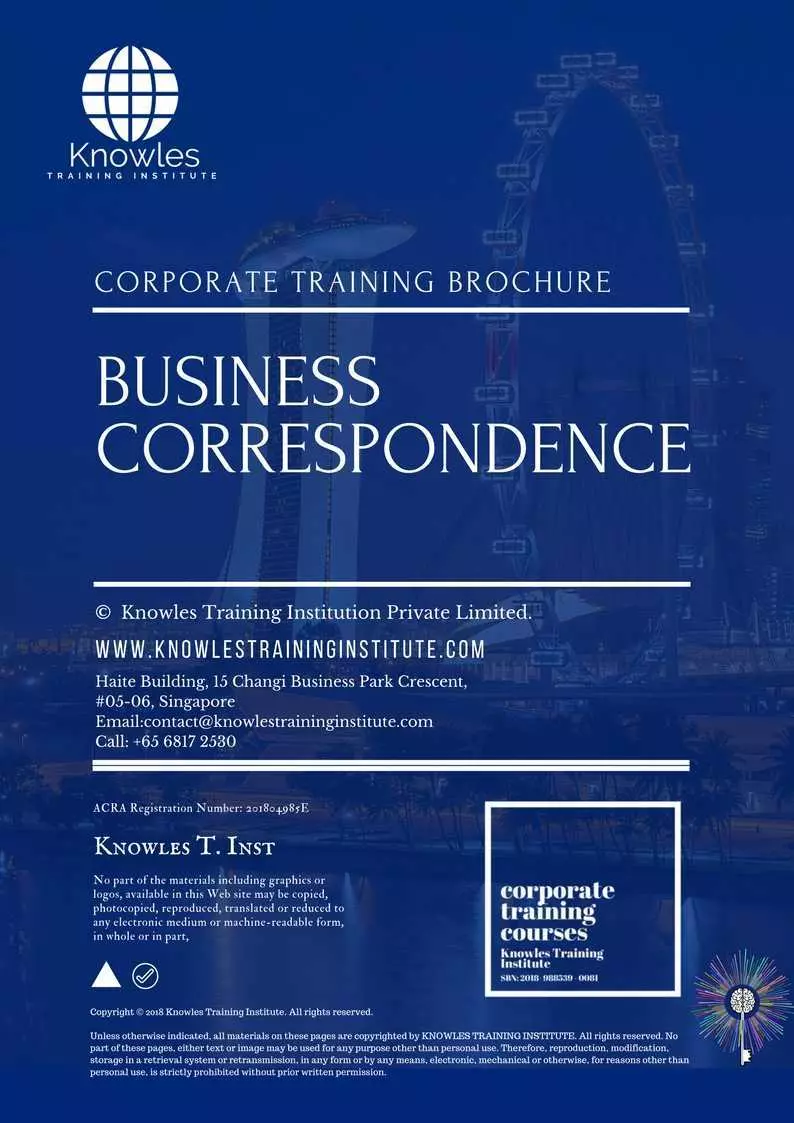
Request for this Business Correspondence course brochure. Fill up the short information below and we will send it to you right away!
Post-Training Support: A vast majority of training does not have any effect beyond 120 days. But to work, training has to have a strong pre- and post-training component. Post-training reinforcement consequently helps individuals to recall the understanding and ask questions.
Blended Learning: Learning does not occur in the classroom. Virtually everybody prefers distinct ways of learning. Successful learning should have a multi-channel, multi-modal strategy.
We Understand The Industry: Similarly, we’ve got a profound comprehension of the business, business design, challenges, strategy and the that our participants are in and have designed the courseware to cater to their professional needs.
Course Content: Knowles Training Institute’s material is relevant, of high quality and provide specific learning outputs. As a result, Participants will leave the training course feeling as they have gained a strong understanding and will also be in a position to execute what they have learned sensibly.
Course Development — The workshop modules follow a systematic and logical arrangement. Therefore, this structure helps to ensure that the course material allows the facilitators to deliver the course in a logical arrangement. Consider the subjects as building bricks into learning, our facilitators slowly build towards a comprehensive picture of this entire topic.
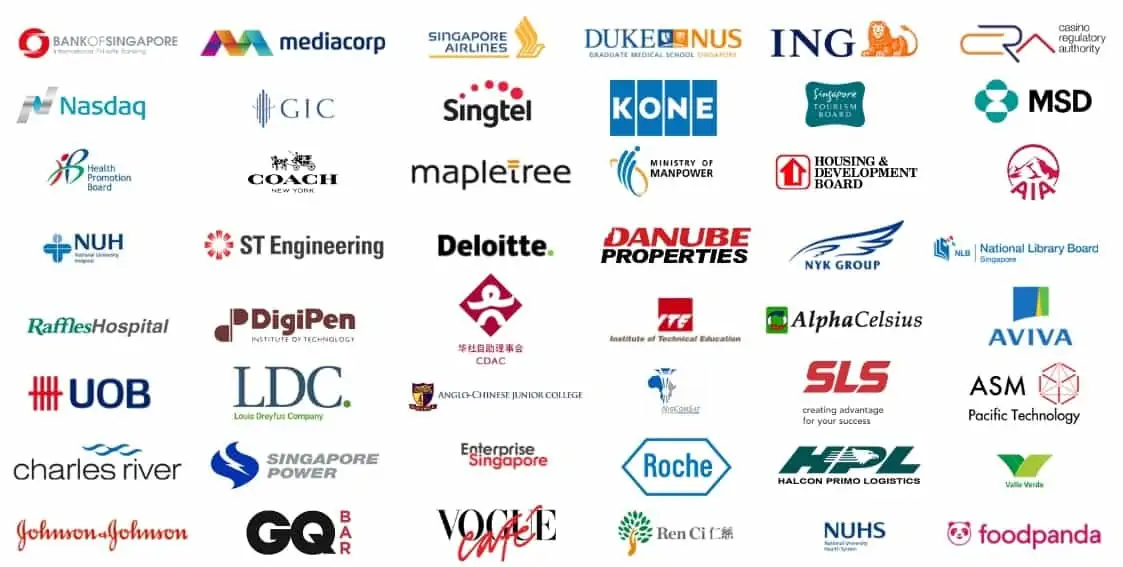

Course Enquiries
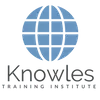
Fill up the form and we will get back to you in less than 1 working day.
Alternatively, give us a call to have one of our training consultants contact you. Our corporate training courses can be contextualized to meet your organization’s training needs. Leverage on our large pool of professional trainers and consultants for your organization’s training needs.
Office Address: 60 Paya Lebar Rd, #07-54 Paya Lebar Square, Singapore 409051
Office Phone: +65 6714 6663
Email: contact@knowlesti.sg
We Guarantee 100% Privacy. We Respect Your Privacy. Your Information Will Never Be Shared.
Questions
Register Now
Register For This Business Correspondence Course Now!
Business Correspondence course, workshop, training, class, seminar, talk, program, programme, activity, lecture. The Best Business Correspondence courses, workshops, classes, seminars, talks, programs, programmes, activities, lectures in Singapore. Effective Business Correspondence improvement tips, Business Correspondence techniques, improve Business Correspondence, improve Business Correspondence games, Business Correspondence improvement exercises, improve Business Correspondence power, how to have good Business Correspondence, how to have good Business Correspondence in studying, how to build up your Business Correspondence, how to improve Business Correspondence how to improve Business Correspondence course in Singapore. Enhance, boost, build up, enlarge, heighten Business Correspondence course in Singapore. Increase, intensify, raise, reinforce, strengthen Business Correspondence. Upgrade, amplify, boom, elevate, exaggerate, magnify, grow, gain Business Correspondence. Develop Business Correspondence, multiple, power up, beef up, bolster, establish, extend Business Correspondence. Invigorate, restore, step up, toughen, empower, fortify, regenerate Business Correspondence. Rejuvenate, renew, escalate, expand, maximize Business Correspondence. Powerful, mighty, impressive, competent, great, excellent, exceptional Business Correspondence in Singapore. Superb Business Correspondence. Super, superior, strong, solid, active Business Correspondence training courses and workshops in Singapore. Online Business Correspondence enhancement, booster, building up, enlargement, heightening, increment, strengthening, amplification. Constructive Business Correspondence magnification, growth, development, power, empowerment, regeneration. Virtual Business Correspondence rejuvenation, development, escalation, expansion. Business Correspondence maximization, power training courses & workshops in Singapore.


